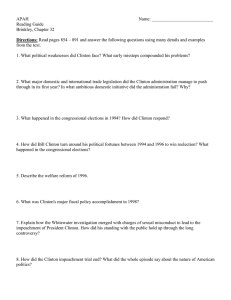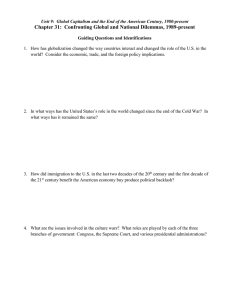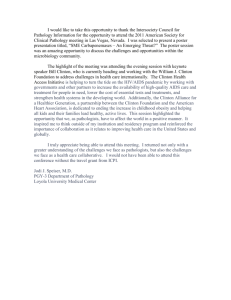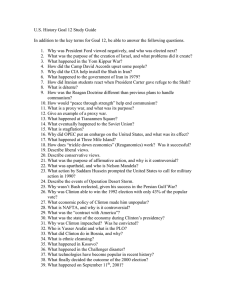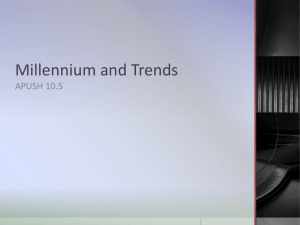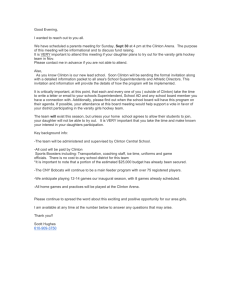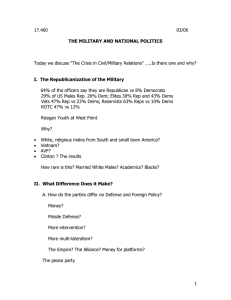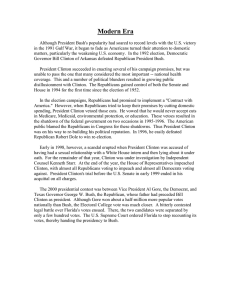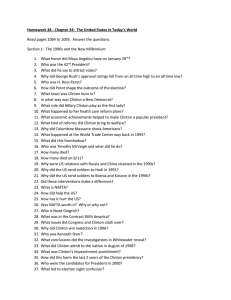Globalization Era: Clinton, 9/11, and Beyond - Study Guide
advertisement
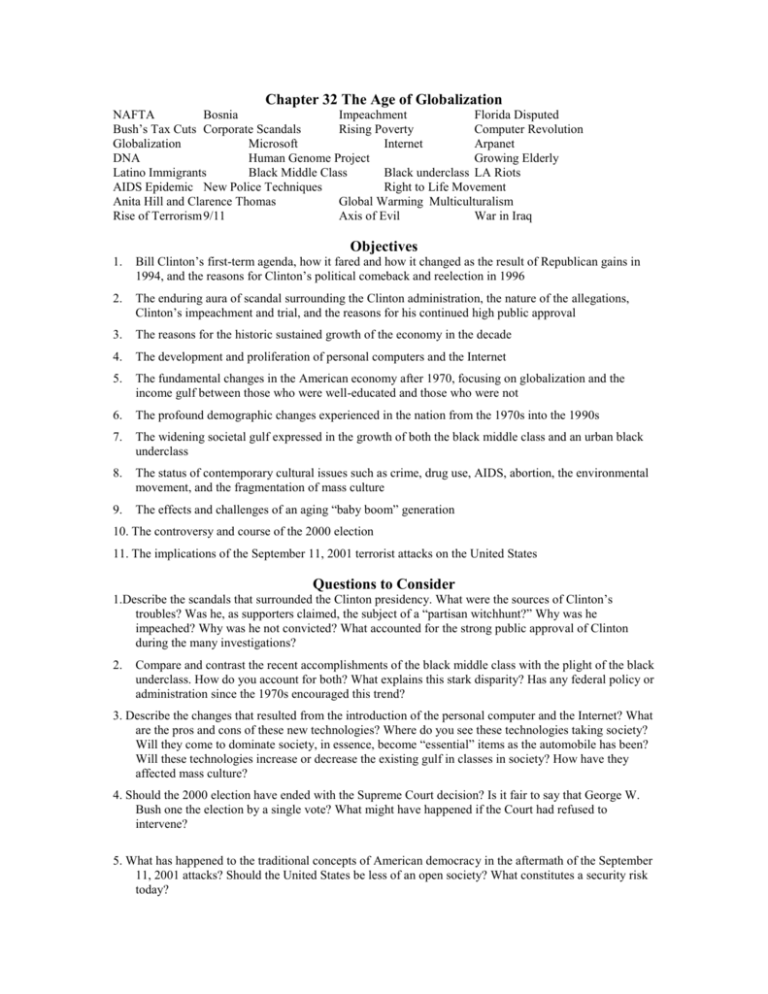
Chapter 32 The Age of Globalization NAFTA Bosnia Impeachment Florida Disputed Bush’s Tax Cuts Corporate Scandals Rising Poverty Computer Revolution Globalization Microsoft Internet Arpanet DNA Human Genome Project Growing Elderly Latino Immigrants Black Middle Class Black underclass LA Riots AIDS Epidemic New Police Techniques Right to Life Movement Anita Hill and Clarence Thomas Global Warming Multiculturalism Rise of Terrorism 9/11 Axis of Evil War in Iraq Objectives 1. Bill Clinton’s first-term agenda, how it fared and how it changed as the result of Republican gains in 1994, and the reasons for Clinton’s political comeback and reelection in 1996 2. The enduring aura of scandal surrounding the Clinton administration, the nature of the allegations, Clinton’s impeachment and trial, and the reasons for his continued high public approval 3. The reasons for the historic sustained growth of the economy in the decade 4. The development and proliferation of personal computers and the Internet 5. The fundamental changes in the American economy after 1970, focusing on globalization and the income gulf between those who were well-educated and those who were not 6. The profound demographic changes experienced in the nation from the 1970s into the 1990s 7. The widening societal gulf expressed in the growth of both the black middle class and an urban black underclass 8. The status of contemporary cultural issues such as crime, drug use, AIDS, abortion, the environmental movement, and the fragmentation of mass culture 9. The effects and challenges of an aging “baby boom” generation 10. The controversy and course of the 2000 election 11. The implications of the September 11, 2001 terrorist attacks on the United States Questions to Consider 1.Describe the scandals that surrounded the Clinton presidency. What were the sources of Clinton’s troubles? Was he, as supporters claimed, the subject of a “partisan witchhunt?” Why was he impeached? Why was he not convicted? What accounted for the strong public approval of Clinton during the many investigations? 2. Compare and contrast the recent accomplishments of the black middle class with the plight of the black underclass. How do you account for both? What explains this stark disparity? Has any federal policy or administration since the 1970s encouraged this trend? 3. Describe the changes that resulted from the introduction of the personal computer and the Internet? What are the pros and cons of these new technologies? Where do you see these technologies taking society? Will they come to dominate society, in essence, become “essential” items as the automobile has been? Will these technologies increase or decrease the existing gulf in classes in society? How have they affected mass culture? 4. Should the 2000 election have ended with the Supreme Court decision? Is it fair to say that George W. Bush one the election by a single vote? What might have happened if the Court had refused to intervene? 5. What has happened to the traditional concepts of American democracy in the aftermath of the September 11, 2001 attacks? Should the United States be less of an open society? What constitutes a security risk today?
